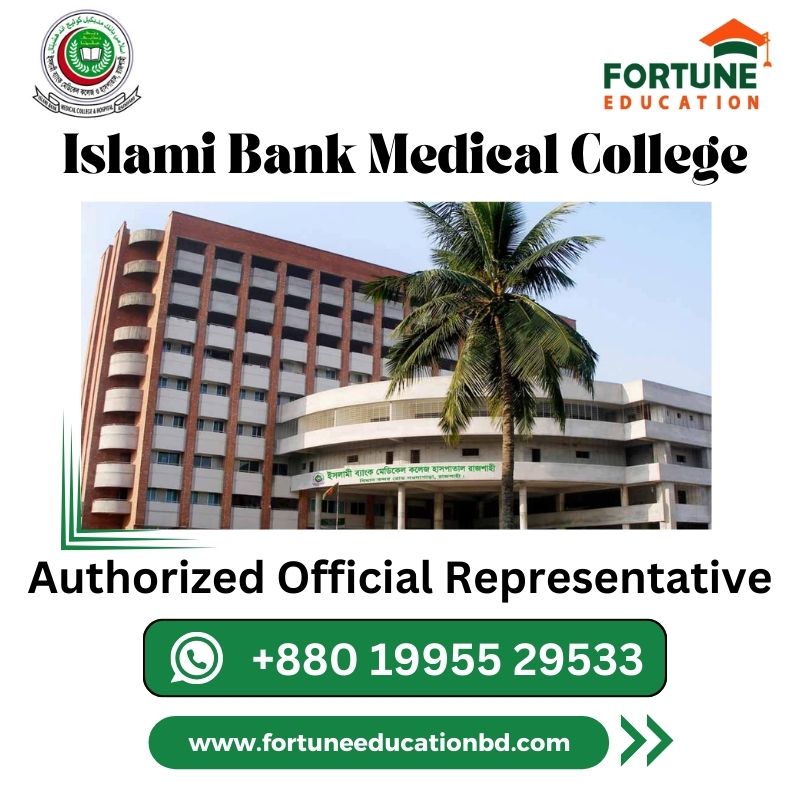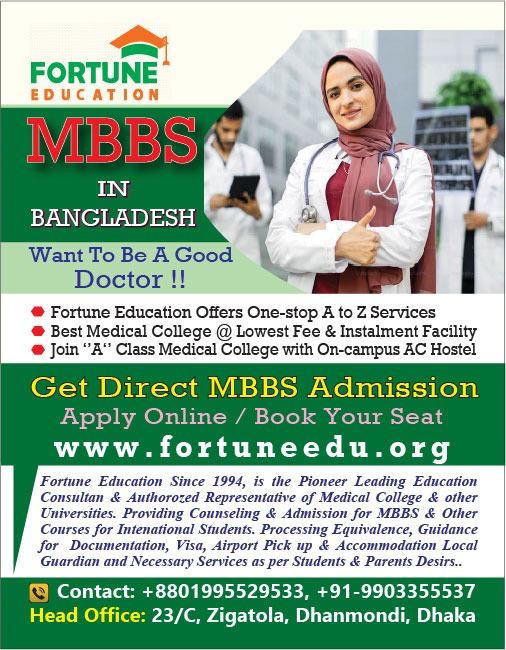Medical education in Nepal has evolved significantly over the years, establishing itself as a reputable choice for students, particularly from the South Asian region. The country offers a robust system for medical education, characterized by comprehensive curricula, experienced faculty, and an emphasis on practical skills. Here’s an overview of medical education in Nepal:
Medical Education in Nepal
Undergraduate Education:
Structure of Medical Education
MBBS Program: The Bachelor of Medicine, Bachelor of Surgery (MBBS) is the primary undergraduate program, typically lasting 5.5 years, including a mandatory internship.
BDS and Nursing: Other undergraduate programs include Bachelor of Dental Surgery (BDS) and various nursing degrees.
Postgraduate Education:
MD/MS Programs: Following the MBBS, students can specialize in various fields through Doctor of Medicine (MD) or Master of Surgery (MS) programs.
Duration: These courses generally last 3 years.
MBBS Admission Process
Eligibility: Candidates must have completed 10+2 or equivalent education, predominantly in science subjects (Physics, Chemistry, Biology).
Entrance Exams: Admission to MBBS and other medical courses usually requires passing an entrance exam. Some colleges conduct their own exams, while others accept scores from exams like NEET (for Indian students).
Clinical Training
Practical Exposure: Medical programs in Nepal emphasize practical training, with students gaining hands-on experience in affiliated hospitals.
Internships: The internship phase is crucial, providing real-world experience in various medical specialties.
Accreditation and Recognition
Nepal Medical Council (NMC): Medical institutions in Nepal are accredited by the NMC, ensuring the quality and standard of medical education.
International Recognition: Many Nepalese medical colleges are recognized by international medical education directories, enabling graduates to pursue further education and career opportunities globally.
Challenges and Opportunities
Resource Variability: While some institutions boast state-of-the-art facilities, others may face resource limitations.
Rural Health Focus: Many programs focus on rural healthcare, preparing students for work in resource-limited settings.
Research Opportunities: Students are encouraged to engage in research, contributing to medical science and healthcare improvements in Nepal.
Career Prospects
In Nepal: Graduates can work in hospitals, health centers, or pursue further specialization.
Abroad: With appropriate licensure, graduates can practice medicine internationally, particularly in countries that recognize Nepalese medical degrees.
MBBS in Nepal for International Students
Cultural Diversity: Nepal’s medical colleges attract international students, offering a multicultural environment.
No Language Barrier: The medium of instruction is English, which is convenient for most international students.
Continuous Medical Education (CME)
Lifelong Learning: Doctors in Nepal are encouraged to engage in CME to keep up-to-date with the latest advancements in medical science.
Medical Colleges in Nepal
Medical education in Nepal is a blend of theoretical knowledge and practical skills, set against the backdrop of the country’s diverse and challenging healthcare landscape. It prepares students not just for careers in medicine but also for roles in research, public health, and community service. For those considering medical education in Nepal, it’s essential to research specific colleges, understand their curriculum, and assess their alignment with personal and professional goals.
Dhulikhel Medical Institute
Overview: Dhulikhel Medical Institute, associated with Kathmandu University, stands out for its focus on community health and rural medicine. The institute combines medical education with extensive community outreach programs, offering a unique perspective on healthcare in Nepal.
Programs and Facilities: It offers MBBS and other health sciences programs. The institute is equipped with modern facilities and emphasizes practical, hands-on training, especially in rural healthcare settings.
Unique Features: The institute’s strong commitment to serving rural and underserved communities in Nepal is a key aspect of its educational philosophy.
Institute of Medicine Nepal (IOM)
History and Reputation: As part of Tribhuvan University, IOM is one of Nepal’s most prestigious medical education institutions. It has a long-standing reputation for excellence in medical education, research, and healthcare services.
Academic Programs: IOM offers a wide range of programs, including MBBS, MD/MS, nursing, and paramedical courses. Its curriculum is designed to meet international standards.
Research and Healthcare Services: IOM is not just an educational institution but also a center for pioneering research and provides comprehensive healthcare services through its affiliated hospitals.
Kathmandu Medical College (KMC)
Affiliation and Accreditation: Affiliated with Kathmandu University, KMC is recognized for its high academic standards and is accredited by major medical councils.
Programs Offered: The college offers MBBS and postgraduate medical education, emphasizing a blend of theoretical knowledge and clinical skills.
Facilities: With well-equipped laboratories, a teaching hospital, and a focus on research, KMC provides a conducive environment for medical students.
Kathmandu University School of Medical Sciences (KUSMS)
Collaborative Approach: KUSMS, part of Kathmandu University, is known for its collaborative approach, working closely with Dhulikhel Hospital.
Curriculum: The school offers MBBS, nursing, and other allied health programs, focusing on a curriculum that balances academic rigor with practical experience.
Community Engagement: KUSMS is active in community health initiatives, providing students with valuable field experience.
Manipal College of Medical Sciences (MCOMS)
International Linkages: Part of the Manipal Education Group, MCOMS has a strong international presence, attracting students from various countries.
Programs and Training: Offers MBBS and other medical programs, with a focus on comprehensive clinical training and state-of-the-art facilities.
Global Standards: The college follows an internationally benchmarked curriculum, preparing graduates for global healthcare challenges.
Manmohan Memorial Institute of Health Sciences
Comprehensive Education: Offers a range of health science programs, including medicine, nursing, and pharmacy.
Focus on Practical Skills: Emphasizes practical training and skills development, preparing students for real-world medical challenges.
Modern Infrastructure: Equipped with modern facilities and technology to provide a contemporary learning environment.
Nepal Medical College (NMC)
Integrated Learning: NMC integrates academic learning with its teaching hospital, providing students with hands-on clinical experience.
Program Diversity: Offers MBBS and a range of postgraduate programs, focusing on producing well-rounded medical professionals.
Research Opportunities: Encourages students to engage in research, contributing to the advancement of medical science.
Tilganga Institute of Ophthalmology
Specialization in Eye Care: A center of excellence in ophthalmology, providing specialized education and training in eye care.
Community Impact: Known for its community eye care programs and outreach, extending services to remote areas.
Innovative Research: Engages in innovative research and offers advanced surgical training in ophthalmology.
Each of these institutions contributes uniquely to medical education in Nepal, preparing students not just academically but also in practical, community-oriented healthcare, making them well-equipped to address diverse medical challenges.
Nepal Medical College (NMC)
Clinical Exposure: NMC emphasizes extensive clinical exposure through its teaching hospital, ensuring that students are well-prepared for their medical careers.
Community Services: The college actively participates in community health services, providing students with real-world experiences in healthcare delivery.
Academic Excellence: NMC is known for its academic rigor and comprehensive approach to medical education, focusing on producing skilled and ethical medical professionals.
Tilganga Institute of Ophthalmology
International Recognition: Renowned for its high-quality eye care services and education, Tilganga has gained international recognition.
Advanced Training: Offers specialized training and research opportunities in various subspecialties of ophthalmology.
Outreach Programs: Notable for its outreach programs, the institute plays a crucial role in preventing and treating eye-related diseases across Nepal, especially in underserved areas.
Overall Educational Environment in Nepal
Global Recognition: Graduates from these institutions are recognized for their competence and are eligible to sit for various international medical licensing exams, making them fit for global practice.
Emphasis on Rural Health: Many medical colleges in Nepal emphasize rural health, preparing students to work in diverse environments, including under-resourced and rural settings.
Research Opportunities: Students are encouraged to engage in research, contributing to the advancement of healthcare in Nepal and globally.
Ethical and Community-Centric Education: Ethical practice and community service are deeply ingrained in the curriculum, reflecting the country’s focus on holistic medical care.
Cultural Diversity: With students from various countries, these institutions offer a culturally diverse environment, enriching the learning experience.
Fortune Education
Medical education in Nepal, offered by these esteemed institutions, stands out for its balance of academic excellence, practical skills, ethical grounding, and community service. The comprehensive and globally benchmarked curriculum, along with the emphasis on practical and rural healthcare, makes the graduates from these institutions highly capable and well-prepared to meet the challenges of the healthcare sector both in Nepal and abroad. Students considering medical education in Nepal should evaluate each institution based on their specific needs, interests, and career aspirations.



